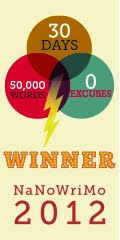
Reem Kelani and her ensemble

The concert given by Palestinian Reem Kelani and seven musicians in London last Thursday night was an example of synergy and ensemble playing at its best. Each of the musicians is well-established in their own particular musical spheres, and each made a significant contribution in complementing Kelani’s rendering of Palestinian songs.
The venue was St Ethelburga’s Centre for Reconciliation and Peace located in Bishopsgate in the financial heart of the City of London. The small church was badly damaged by an IRA bomb 12 years ago and has been extensively restored.
Kelani first performed at St Ethelburga’s six months ago, and the fact that she has been invited to give a return concert so soon reflects the enthusiasm with which her previous appearance was received.
In introducing the concert, the director of the centre, Simon Keyes, said that the previous Friday the great novelist, critic and painter John Berger had attended an event in his honour at the centre. Berger had “made two remarkable observations. One was he said ‘us’ and ‘them’ are the two most dangerous words in any language, and the other thing was he had just come back from Palestine and said he couldn’t wait to get back there because he had found it such a moving place to be.
“The reason for that, he said, was that more than anyone else in the world, the Palestinians have really learnt to live in the present moment. They have faced up to the most extraordinary, appalling history, but they are here, and they are living now today, and they are really beginning to move forward.”
The concert lived up to it billing as “Middle Eastern Harmonies: an Evening of Music and Laughter with Reem Kelani and Friends.” There was plenty of humour, but at the same time there was much passion and pain in Kelani’s moving delivery of traditional improvisations and settings of contemporary Palestinian poetry.
The musicians included jazz pianist Zoe Rahman and her saxophonist brother Idris, who have emerged as important forces on the British jazz scene. Zoe Rahman has her own jazz trio, and also works with many prominent musicians. Idris Rahman is co-leader of the London-based band Soothsayers which plays jazz, African and Caribbean music.
On violin was Egyptian Sami Bishai and on double bass Oil Hayhurst. Iranian Fariborz Kiani played daff and tombak. Salah Dawson Miller played frame drums, and Patrick Illingworth was on drum kit.
Kelani and the ensemble are now in the process of recording tracks for her first CD, which is due to be released in October.
Susannah Tarbush
Saudi Gazette 24 May 2005




